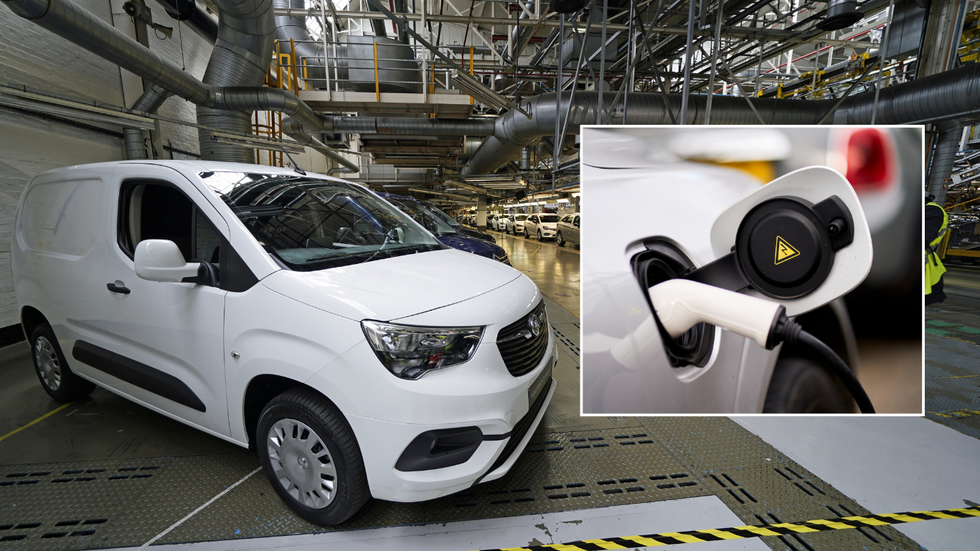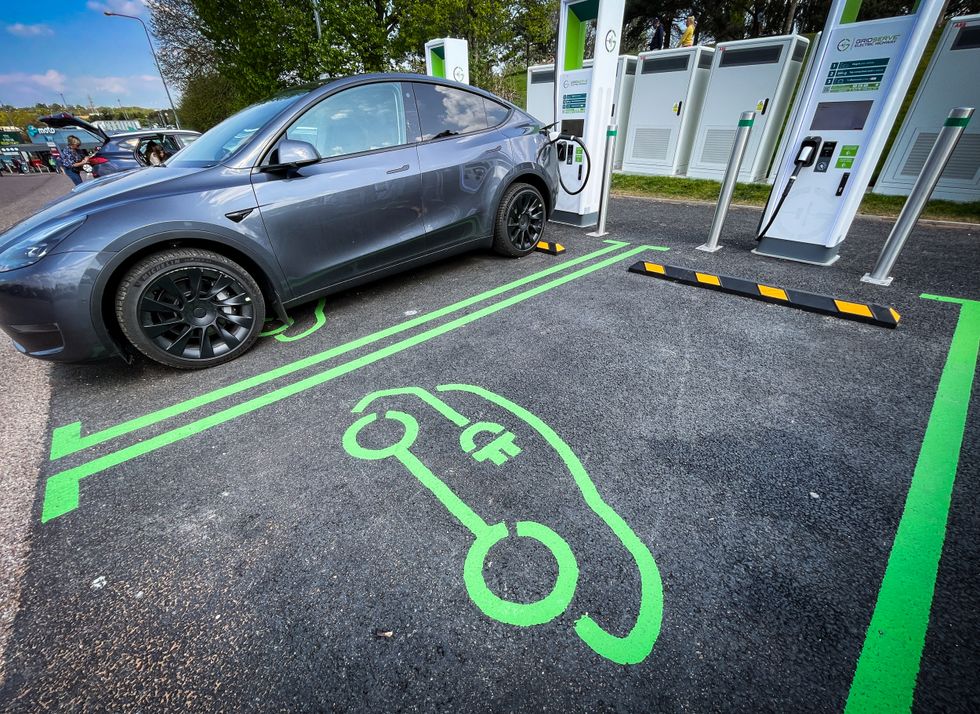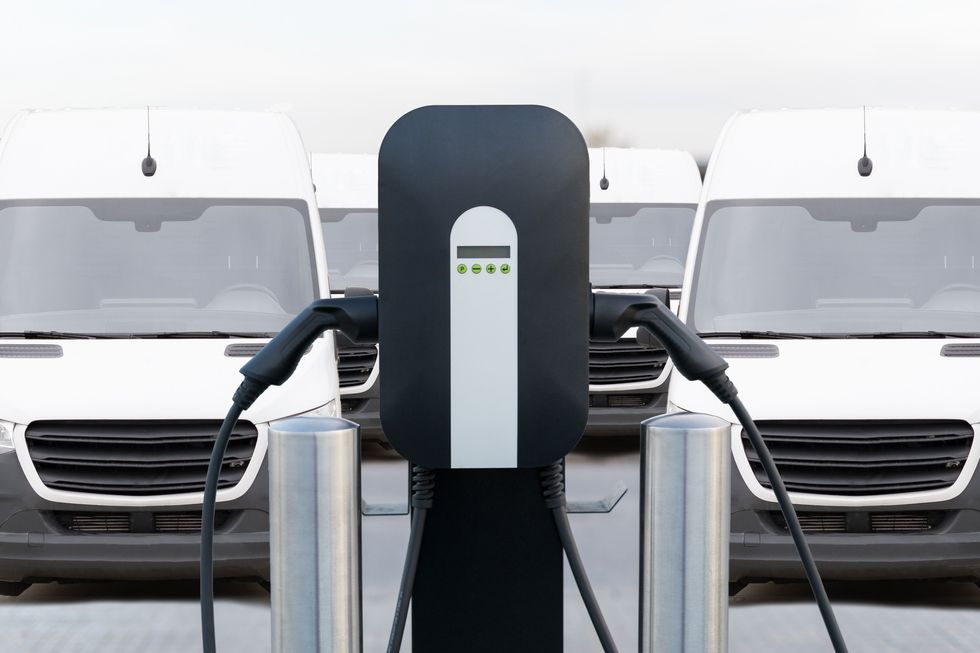Britons turn their backs on popular vehicle as high prices impact decisions for millions
WATCH: Department For Transport announces measures to make it cheaper to install electric vehicle charge points
|GB NEWS

Electric van sales have been falling across the UK despite significant discounts from the Government
Don't Miss
Most Read
Tradespeople across the UK have been found to turn their backs on electric vans despite significant discounts being offered by manufacturers.
The reluctance comes after growing concerns over high purchase prices as well as limited charging infrastructure and range anxiety surrounding the greener vehicles.
To combat the lapsing interest, van makers have been applying discounts of up to 26 per cent on new electric models in an attempt to boost sales, but trade workers remain unconvinced.
Figures have revealed that used electric vans have been taking 12 days longer to sell than their diesel counterparts, highlighting a significant confidence crisis in the electric van market despite growing pressure to meet the UK's Zero Emissions Mandate targets.
Do you have a story you'd like to share? Get in touch by emailing motoring@gbnews.uk
Drivers have remained hesitant to purchase an electric van due to range and charging anxieties
| PA/GETTYThe current market share of electric vans stands at just eight per cent, falling well short of the 16 per cent target required under the Zero Emissions Mandate this year, despite a softening of the rules earlier in 2025.
New electric vans have commanding premium prices of up to £20,000 more than their diesel equivalents, with the most expensive Iveco model priced at £58,000, reports found. This substantial price gap remains a significant deterrent for tradespeople considering the switch to electric vehicles.
Used electric vans are often more affordable than comparable diesel models, yet they still face resistance from potential buyers.
Auto Trader's data showed that even with these price advantages in the second-hand market, used electric vans take nearly two weeks longer to sell than diesel alternatives.
A key barrier to electric van adoption has been the uneven distribution of charging infrastructure across the UK, the data revealed.
According to MPs, while the country is on track to reach its target of 300,000 public charge points by 2030, nearly half (43 per cent) are concentrated in London and the southeast, leaving tradespeople in other regions stranded.
Toby Poston, British Vehicle Rental and Leasing Association Chief Executive, said: "Van-friendly charge points are still too scarce, and without the ability to reserve chargers or access simple, reliable payment systems, operators face unnecessary downtime."
Range limitations presented another significant hurdle for electric van adoption, with Auto Trader finding that electric vans typically offer less than half the range of their diesel counterparts, which can travel between 500 and 600 miles on a single tank.

Van drivers warned that charge points have not been evenly distributed across the UK
| GETTYThis substantial difference in operational range has created practical concerns for tradespeople and the more than 4.6 million van users in the UK who often travel long distances or work in areas with limited charging infrastructure.
The combination of reduced range and charging uncertainty makes many van operators hesitant to make the switch, despite the potential long-term cost savings of electric vehicles.
Tom Roberts, Commercial Vehicle expert at Auto Trader, said: "There's a confidence crisis among tradespeople in going electric.
"Prices of used vans are coming down, but if we want to encourage white van men and women to go green, we need more charging points, spread more evenly around the country."
LATEST DEVELOPMENTS:
- Major Highway Code changes to come into effect for first time in over 10 years - 'Long overdue'
- Motorists risk being banned from UK roads and forced to follow restrictions for breaking major driving law
- UK would see speed limits drop to 10mph on major roads under new proposals
 Drivers can also apply for up to £5,000 in grants for electric vans | GETTY
Drivers can also apply for up to £5,000 in grants for electric vans | GETTYRoberts added: "Vans account for more than one in eight of every vehicle on UK roads, so we need to make sure that a similar share of our public charging points are big enough to use them."










